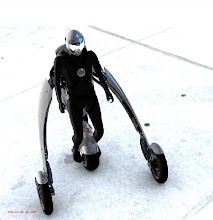Article link from: economist.com
=============================================
A walk on the dark side
Aug 30th 2007
From Economist.com
These badhats may have bought your bank account
ACCORDING to VeriSign, one of the world’s largest internet security companies, RBN, an internet company based in Russia’s second city, St Petersburg, is “the baddest of the bad”. In a report seen by The Economist, VeriSign’s investigators unpick an extraordinary story of blatant cybercrime that implies high-level political backing.In one sense, RBN (Russian Business Network) does not exist. It has no legal identity; it is not registered as a company; its senior figures are anonymous, known only by their nicknames. Its web sites are registered at anonymous addresses with dummy e-mails. It does not advertise for customers. Those who want to use its services contact it via internet messaging services and pay with anonymous electronic cash.
But the menace it poses certainly exists. “RBN is a for-hire service catering to large-scale criminal operations,” says the report. It hosts cybercriminals, ranging from spammers to phishers, bot-herders and all manner of other fraudsters and wrongdoers from the venal to the vicious. Just one big scam, called Rock Phish (where gullible internet users were tricked into entering personal financial information such as bank account details) made $150m last year, VeriSign estimates.
Plenty of other internet companies sail close to the wind—hosting unregulated online gambling for example. But according to a VeriSign investigator, “the difference is that RBN is solely criminal”. The pricing depends on the level of complaints. A discreet organisation pays little; one that attracts a lot of unwelcome attention, forcing RBN to take expensive countermeasures, has to pay more.
Despite the attention it is receiving from Western law enforcement agencies, RBN is not on the run. Its users are becoming more sophisticated, moving for example from simple phishing (using fake e-mails) to malware known as “trojans” that sit inside a victim’s computer collecting passwords and other sensitive information and sending them to their criminal masters.
A favourite trick is to by-pass the security settings of a victim's browser by means of an extra piece of content injected into a legitimate website. An unwary user enters his password or account number into what looks like the usual box on his log-in page, and within minutes a programme such as Corpse’s Nuclear Grabber, OrderGun and Haxdoor has passed it to a criminal who can empty his bank account. When VeriSign managed to hack into the RBN computer running the scam, it found accumulated data representing 30,000 such infections. “Every major trojan in the last year links to RBN” says a VeriSign sleuth.
RBN even fights back. In October 2006, the National Bank of Australia took active measures against Rock Phish, both directly and via a national anti-phishing group to which the bank’s security director belonged. RBN-based cybercriminals replied by crashing the bank’s home-page for three days.
What can be done? VeriSign has tracked down the physical location of RBN’s servers. But Western law enforcement officers have so far tried in vain to get their Russian counterparts to pursue the investigation vigorously. “RBN feel they are strongly politically protected. They pay a huge amount of people. They know they are being watched. They cover their tracks,” says VeriSign. The head of RBN goes under the internet alias “Flyman”; his uncle is thought to be a senior St Petersburg politician. Repeated e-mails to RBN’s purported contact addresses asking for comment have gone unanswered.
Companies can simply block access to any site registered at an RBN IP address. But that will not help most victims, such as those who receive infected e-mails. VeriSign says only strong political pressure on Russia will make the criminal justice system there deal with this glaring example of cyber-illegality.

